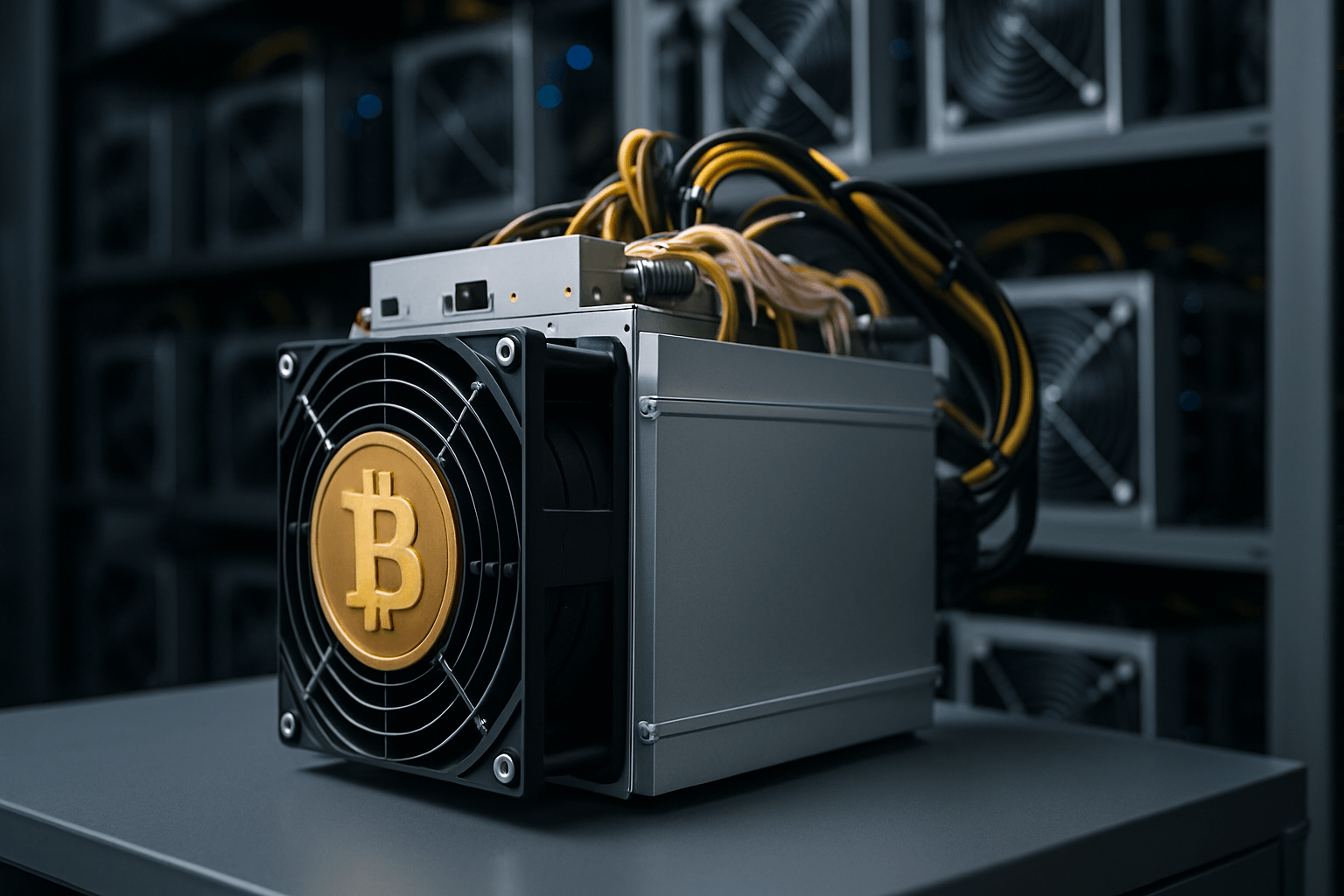Borrowing
What is USDC? A Detailed Guide
December 06, 2023
Borrowing
December 06, 2023

USDC is one of the most popular stablecoins in the crypto world, find out what this means and how you can use USDC in this article.
The cryptocurrency market is volatile, and stability is a key factor that affects how investors and users interact with digital currencies. Circle's USD coin, commonly known as "USDC," is an important cornerstone in the world of stable digital assets.
USDC is a digital currency that is designed to maintain a stable value relative to the US dollar. It is one of the most popular stablecoins in the crypto market, with a market capitalization of over $20B.
The USDC stablecoin offers many advantages to crypto enthusiasts by facilitating trading, saving, and participating in decentralized finance (DeFi) applications. Each USDC token is backed 1:1 by US-dollar equivalents in reserves, which are regularly audited to ensure compliance. Thanks to these reserves, the token maintains a 1:1 "peg" with the US dollar, trading for $1 at all times.
In this article, we will explore what USDC is, how it works, what it can be used for, and how to convert it to USD. But before we get started, we should get familiar with the concept of stablecoins as a whole.
A stablecoin is a type of cryptocurrency that aims to maintain a stable value relative to a fiat curency or a basket of commodities. The purpose of stablecoins is to serve as a kind of highly liquid "digital dollar."
Stablecoins are designed to reduce the volatility and risk typically associated with cryptocurrencies while offering the speed, security, and transparency of blockchain technology. The most reliable stablecoins are fiat-backed. Fiat-backed stablecoins are pegged to the value of a traditional fiat currency and maintain reserves that back the stablecoin at a 1:1 ratio.
The three most popular stablecoins are USDC, USDT, and DAI. All three are dollar-denominated assets, as they are pegged to the US dollar.
Let's take a brief look at each of these:
One of the most popular fiat-backed stablecoins is the USD Coin (USDC), which mirrors the value of the US dollar.
USDC is issued by Circle, a blockchain company responsible for minting the stablecoin and maintaining the USDC reserves. Every USDC token in circulation is backed by an equivalent value of US dollars, or dollar-denominated assets held in reserve. This reserve-backed system guarantees the value of the token and ensure that the USDC price does not dip below one dollar. This design provides users with a sense of trust and security, making fiat-collateralized stablecoins an attractive choice for those seeking a reliable store of value in the crypto space.
USDT is another stablecoin that is pegged to the U.S. dollar at a 1:1 rate. However, unlike USDC, USDT does not disclose the exact composition of its reserve assets, which may include cash, cash equivalents, and other securities.
USDT was launched in 2014 and is managed by Tether. USDT is compatible with multiple blockchains, including Ethereum, Tron, and EOS and it offers fast, low-cost transactions.
DAI is a stablecoin that is minted by MakerDAO, a decentralized organization that relies on collateralized crypto assets to maintain the DAI stablecoin's backing.
As with other stablecoins, DAI is designed to keep a 1:1 peg with the U.S. dollar.
DAI was launched in 2017 as part of the MakerDAO protocol on the Ethereum blockchain. MakerDAO allows users to mint and manage DAI through a system of loans, smart contracts, and governance votes.
Now that we're familiar with stablecoins, let's take a deeper look at USDC in particular.
Launched in 2018, USDC represents a tokenized "digital dollar," where the value of one USDC coin is pegged as close as possible to the value of one U.S. dollar.
This means that one USDC is always worth one USD, regardless of the fluctuations in the rest of the crypto market.
USDC is issued and managed by Circle, a blockchain fintech company, and Coinbase, a leading crypto exchange, in collaboration with the Centre Consortium. Circle and Coinbase co-founded the Centre Consortium in 2018 to establish an open standard for fiat currencies on the internet and provide a governance framework for the global adoption of stablecoins.
The process of creating a new USDC coin is called minting. Minting is a three-step process:
The process of converting USDC back to USD is called redeeming. Redeeming is also a three-step process:
The reserve assets that back USDC are held in segregated accounts with regulated financial institutions such as BlackRock and BNY Mellon. The reserve assets are composed of ~80% short-dated U.S. Treasuries and ~20% cash deposits within the U.S. banking system.
These reserves are regularly audited to ensure that each USDC token is indeed backed 1:1 by US-dollar equivalents. This ensures the stability of the token.
USDC offers several benefits to users:
Similar to other cryptocurrencies, USDC boasts versatility in its applications, offering users a stable and reliable medium of exchange. This stability, coupled with its pegged value to the US dollar, positions USDC as an attractive asset for various transactions and investments in both the crypto and traditional markets. Here are some of the use cases of USDC:
For Crypto Transactions
For Non-Crypto Transactions
As USDC gains popularity in the crypto world, many wonder how to convert it back to a fiat currency such as USD. The main method is through a centralized crypto exchange platform.
Centralized Platforms: You can use platforms like Coinbase, Crypto.com, Binance, and Gemini, which support both USDC and USD. Here's how the process works:
KYC Process: Before using these platforms, you'll need to undergo a KYC (know your customer) process, a necessary practice in traditional financial services that's used to verify your identity. The KYC process includes:
Rocko is a new platform that enables crypto owners to easily and securely borrow from popular DeFi protocols like Aave, Compound, and Morpho and get funds in minutes — no experience needed! Use the loan to purchase real estate, pay down higher-rate debt, make everyday purchases, and much more.
Rocko also provides a loan management dashboard and tools like text and email alerts to help manage your loan and collateral. The Rocko team consists of experienced crypto enthusiasts who are ready to help you with any questions you may have. You can join the Rocko Discord server, follow our Twitter account, or visit our resource center to learn more about DeFi borrowing.
Sign up for Rocko and get a loan today!
Rocko does not guarantee the reliability of the Site content and shall not be held liable for any errors, omissions, or inaccuracies. The opinions and views expressed in any articles on rocko.co are solely those of the author(s) and do not reflect the opinions of Rocko. The information provided on the Site is for informational purposes only, and it does not constitute an endorsement of any of the products and services discussed or investment, financial, or trading advice. A qualified professional should be consulted prior to making financial decisions.

Rocko How-tos
Lock In Your Rate: How Kairos Swap Brings Fixed-Rate Lending to DeFi If you've ever borrowed against your crypto on Aave, Morpho, or similar…
September 15, 2025

Crypto & DeFi
Why Borrow Against Staked ETH? Liquid-staking tokens (LSTs) such as stETH, wstETH, cbETH and rETH let you keep earning staking rewards while…
June 17, 2025

Crypto & DeFi
Bitcoin Mining Loans: How to Fund Your Mining Business Bitcoin mining is the backbone of the Bitcoin network—a decentralized process where…
May 07, 2025